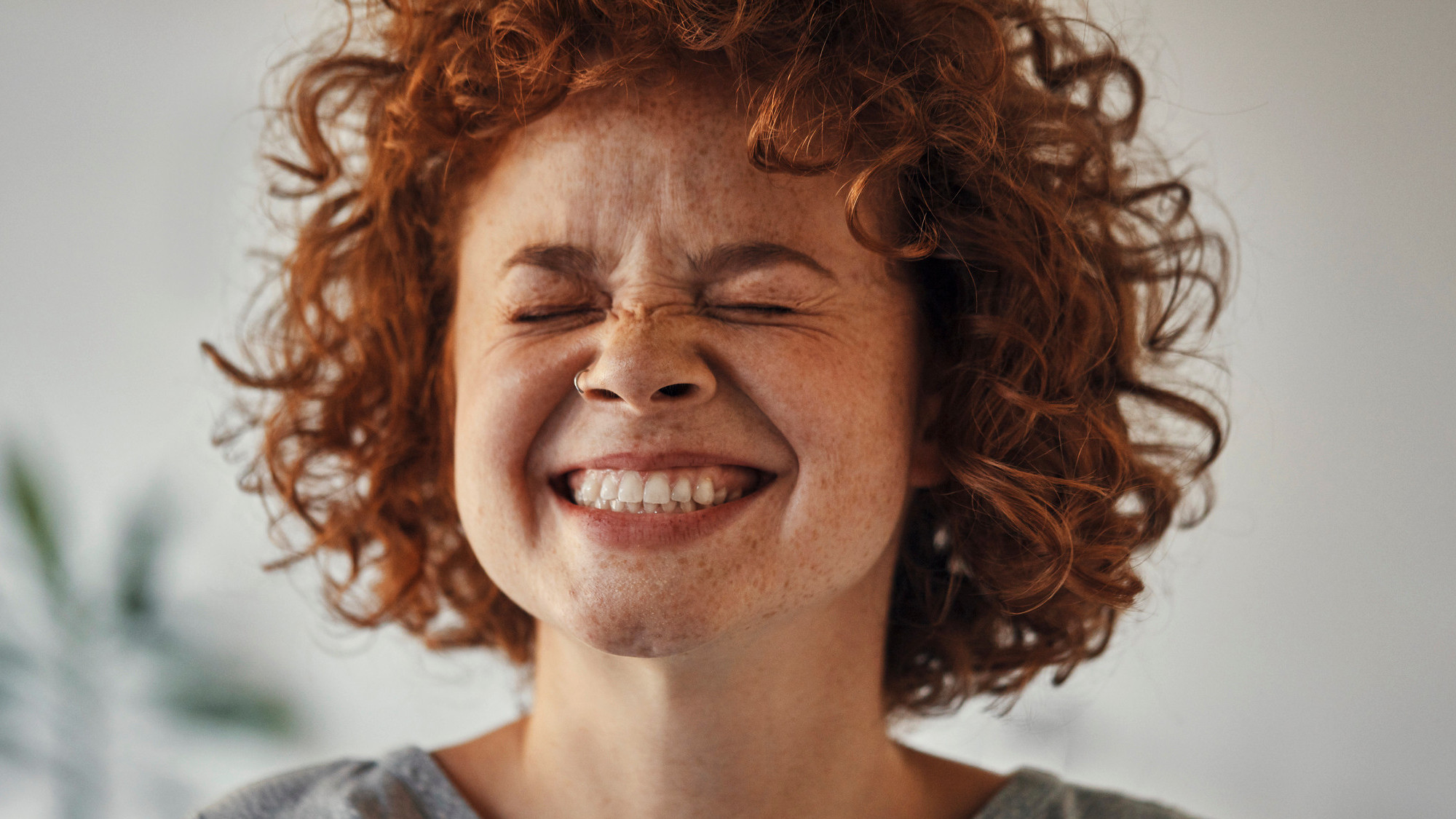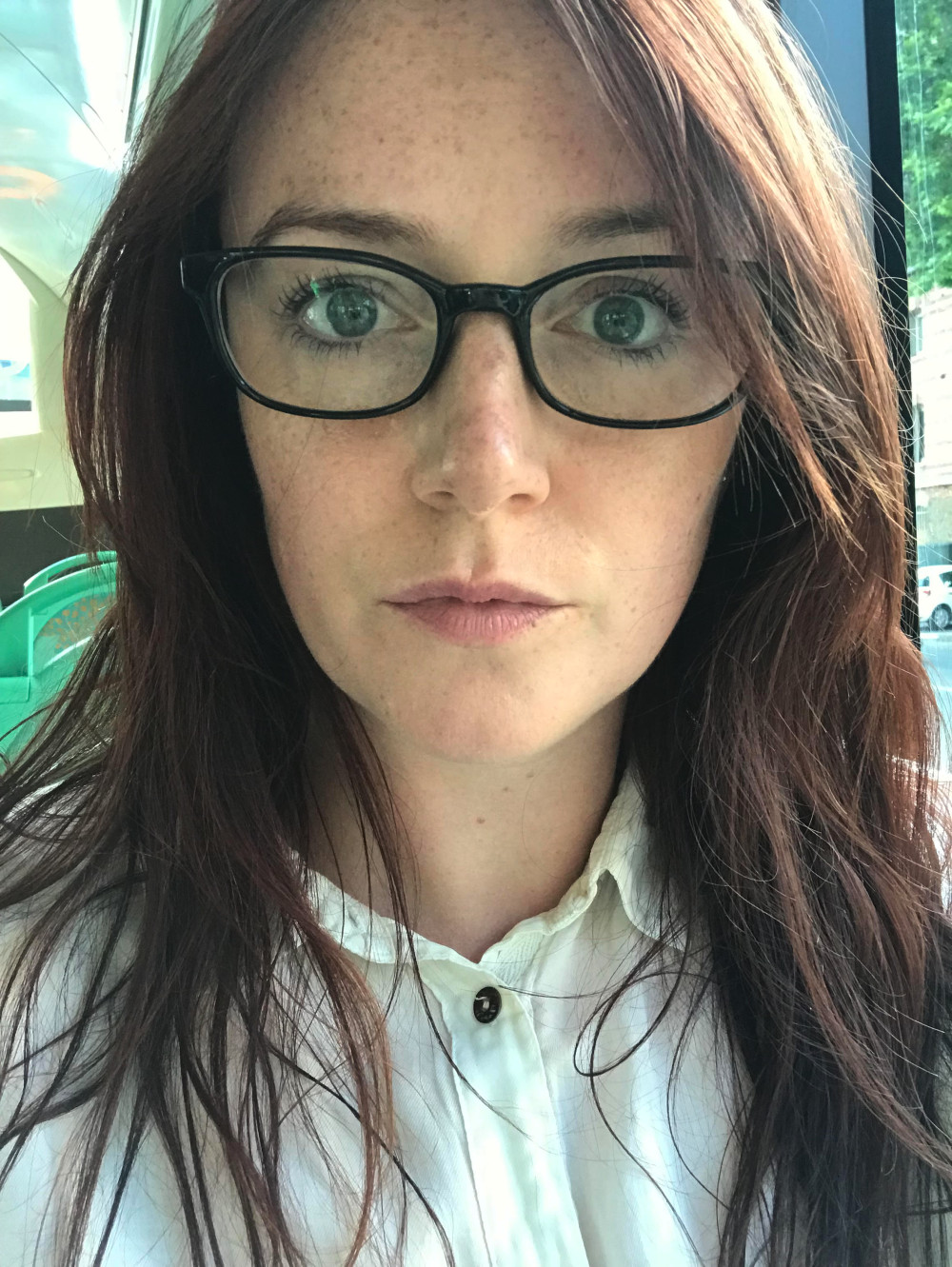How to get a grip during this never-ending lockdown
With almost a year of lockdowns under our belt, Kate Lucey's new book, Get A Grip, Love, is perfectly timed. Reminding us that it's fine not to feel OK, Lucey sharing her strategies on how we can manage our mental health


With almost a year of lockdowns under our belt, Kate Lucey's new book, Get A Grip, Love, is perfectly timed. Reminding us that it's fine not to feel OK, Lucey sharing her strategies on how we can manage our mental health
We're talking about mental health a lot more than we ever did. Which is a VERY GOOD THING and something author and journalist Kate Lucey knows all about. Because Lucey has been ‘officially’ depressed (as in, diagnosed) for six years. She’s experienced everything from bad therapy, knock-out meds, and friends-with-too-many-opinions, to good therapy, medication, and solutions that actually work. Working out how to get a grip is a topic Lucey has literally written a book on.
Her debut Get a Grip, Love is a funny, irreverent, and relatable book, which reminds us that it’s fine not to feel ok. (She helpfully and tactfully covers 'what to say to those mates who fancy themselves as amateur psychologists' moments). But more importantly, Lucey reminds us that you don't need to get a grip on everything ALL the time. Here Lucey reports on how we can manage our mental health as we continue to live through a pandemic and a seemingly never-ending lockdown.

The amount of adults experiencing some kind of depression in the UK doubled during the pandemic, with 1 in 5 reported to be going through depression of some sort. Not a shocking statistic really, as Lockdown 3 rolls on with no end in sight it’s fair to say that all of us have gone through low moods and some pretty bleak times.
Low mood is different to depression, though, and it’s difficult to say if the increased diagnoses are situational and because of the pandemic, or because lockdown has forced us to look at our mental health and given us time to make steps towards managing it better - the first step often (and wisely) being to go to a GP and explain how you’re feeling. In general, a low mood will eventually lift, and those experiencing it know that it will pass at some point. Depression is more constant, heavier to shift, and can occur seemingly for no reason - although the pandemic has affected many of us.
So, with almost a year (!) of lockdowns under our belt, what have we learnt that actually helps us manage our mental health?
Talking to someone is easier than you think
Many of us are finding it easier to talk to our friends and family about our mental health these days, as there’s - sadly, yet helpfully - a “we’re all in this together” feeling around the pandemic, and it’s highly likely that those close to you are feeling low, too.
Marie Claire Newsletter
Celebrity news, beauty, fashion advice, and fascinating features, delivered straight to your inbox!
“I’ve found it so much easier to talk about how I’m feeling during the whole Covid-19 crisis,” says Hannah. “We’re all having a horrible time, so it doesn’t feel as ‘weird’ to talk about being anxious, scared or generally really low, as it perhaps would have before when not everyone I talk to would have been able to relate.”
While it’s easy to stay connected via the buffet of tech solutions at our fingertips, a screen conversation doesn’t provide the intimacy of a face-to-face chat over a cuppa. If your local guidelines allow you to go for a socially-distanced walk with a (masked-up) friend, do it.
We NEED to give ourselves a break
“We are currently living in a period of uncertainty, worry and fear. Living in a pandemic we feel we no longer have control over our own lives,” says Counselling Directory member Yvonne Inglis.
“Our survival - physically, mentally, emotionally and financially - feels under attack, prompting our fight or flight response. This can manifest itself in stress, anxiety and depression. Many of us are juggling work, either at home or as a key worker, home schooling or parenting, and a lot of us feel we have to be “on” constantly.
“The boundaries between work and home have become blurred, and therefore people feel they don’t know how to or don’t have time to relax.”
When you’re feeling the pressure to be productive or always working towards making things better for yourself, give yourself the same chat that you’d give your best friend if they told you they were feeling crumpled under the pressure to be “on”. This would likely cover points such as:
* There's a pandemic out there A Pan. Dem. Ic. Not seen in over 100 years. The world is not ‘normal’ and you shouldn’t put pressure on yourself to run your regularly scheduled programming at a time when absolutely everything else has changed.
* Focus on today not the future The amount of stress and anxiety we’re all going through right now is unparalleled to anything we’ve seen before. Try to just focus on the current day and not think about the future - yep, it’s difficult, but trying to think about what you need to do and what would make you feel good in the next few hours is more beneficial than worrying about what will happen over the next few months.
* Mark out your boundaries If you’re working or homeschooling, find something that separates the ‘work time’ from the ‘home time’ - even if it all happens in the same room. Whether this is packing things away and replacing them with a vase of flowers, having a bath, reading a book, or simply changing the lighting and the furniture a tiny bit, give yourself some kind of separation.
Memes help
OK so this one may seem a bit shallow on the surface but honestly, the amount of Instagram accounts that are articulately and succinctly translating our feelings around the pandemic into oh-so relatable memes, graphs or videos is fantastic.
There are heaps of accounts (InstaChaaz, Gemma Correll and Very British Problems for starters) showing us through ‘gentle comedy’ that we’re not the only ones feeling this way, and sending or tagging a friend into one of these posts is an easy way to say “it’s not just you, it’ll get better, we’re in this together.”
Get a Grip, Love by Kate Lucey (HQ), is out now in Hardback, eBook and Audio
Maria Coole is a contributing editor on Marie Claire.
Hello Marie Claire readers – you have reached your daily destination. I really hope you’re enjoying our reads and I'm very interested to know what you shared, liked and didn’t like (gah, it happens) by emailing me at: maria.coole@freelance.ti-media.com
But if you fancy finding out who you’re venting to then let me tell you I’m the one on the team that remembers the Spice Girls the first time round. I confidently predicted they’d be a one-hit wonder in the pages of Bliss magazine where I was deputy editor through the second half of the 90s. Having soundly killed any career ambitions in music journalism I’ve managed to keep myself in glow-boosting moisturisers and theatre tickets with a centuries-spanning career in journalism.
Yes, predating t’internet, when 'I’ll fax you' was grunted down a phone with a cord attached to it; when Glastonbury was still accessible by casually going under or over a flimsy fence; when gatecrashing a Foo Fighters aftershow party was easy-peasy-lemon-squeezy and tapping Dave Grohl on the shoulder was... oh sorry I like to ramble.
Originally born and bred in that there Welsh seaside town kindly given a new lease of life by Gavin & Stacey, I started out as a junior writer for the Girl Guides and eventually earned enough Brownie points to move on and have a blast as deputy editor of Bliss, New Woman and editor of People newspaper magazine. I was on the launch team of Look in 2007 - where I stuck around as deputy editor and acting editor for almost ten years - shaping a magazine and website at the forefront of body positivity, mental wellbeing and empowering features. More recently, I’ve been Closer executive editor, assistant editor at the Financial Times’s How To Spend It (yes thanks, no probs with that life skill) and now I’m making my inner fangirl’s dream come true by working on this agenda-setting brand, the one that inspired me to become a journalist when Marie Claire launched back in 1988.
I’m a theatre addict, lover of Marvel franchises, most hard cheeses, all types of trees, half-price Itsu, cats, Dr Who, cherry tomatoes, Curly-Wurly, cats, blueberries, cats, boiled eggs, cats, maxi dresses, cats, Adidas shelltops, cats and their kittens. I’ve never knowingly operated any household white goods and once served Ripples as a main course. And finally, always remember what the late great Nora Ephron said, ‘Everything is copy.’